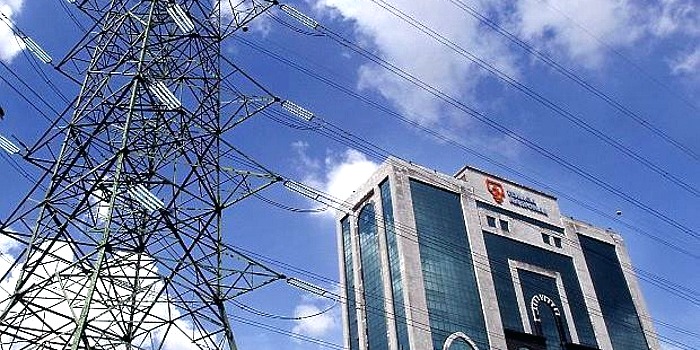Given the heavy subsidies which weigh on the national coffers, targeted subsidization is becoming an essential policy the unity government must look into instantly.
Prime Minister Datuk Seri Anwar Ibrahim said the government would not consider increasing the domestic electricity tariff at this juncture so as not to increase the financial burden of the people.
He said if the government were to increase the tariff, then it would target only export-oriented multinational corporations.
The PM also said if the government was not doing anything, it would have to shoulder an additional RM30 billion of fiscal burden annually.
Indeed, utility tariffs in Malaysia are too cheap, and large corporations, in particular export-oriented businesses, should not be entitled to excessive government subsidies on utility bills.
Without affecting the production and operation of these companies, we feel that the government should indeed review its policy of rationalizing export-oriented MNCs’ electricity tariff.
International Energy Agency (IEA) statistics show that Malaysia’s domestic electricity tariff was among the cheapest in the world in 2021 at RM0.336 per kWh, which was only 45% of 15th placed Singapore, and 25% of 32nd placed Denmark.
As for industrial electricity tariff, we were placed seventh from the bottom at only RM0.366 per kWh, or 57% of Singapore’s.
Notably, those figures were for 2021, before the Russia-Ukraine conflict sent international oil and gas prices soaring. As a result of the war, US$100 per barrel of international crude prices have become a norm.
At the same time, major oil producing countries such as Saudi Arabia have rejected Washington’s proposal to boost the output. As a consequence, utility bills have shot up exponentially across the globe, in the EU, UK, Japan, South Korea, US and Canada, among others.
In the beginning, governments across the world tried to stop fuel prices from going through the roof causing electricity tariffs to rise and hence triggering a fierce wave of inflation.
Like Malaysia, the governments of these countries tried to absorb the cost increase as much as they could with the hope their moves could send their countries smoothly past an imminent crisis.
Unfortunately, the war in Europe lasted much longer than many would have anticipated, making the energy cost uptrend practically impossible to mitigate within a short period of time.

The disrupted supply of fuels has since sent prices higher. As many countries in the West were unable to provide long-term subsidies, they had to eventually make the painful decision of raising their electricity tariffs.
What happened next was this: over the past half a year or so, we have witnessed a globalized inflation owing to higher electricity tariffs worldwide. The EU, US, South and Central American countries have all experienced mounting inflationary pressure to the tune of 7% to 12%, levels unseen in the past four decades and far above the 2021 year-end projection of 2.1% by The Economist.
To stem runaway inflation, the Fed hiked the interest rates for several months in a row, forcing many other countries in the world to follow suit.
Unfortunately, the anti-inflation effects fell short of expectations and as a result of the Fed’s rate hikes, many countries saw their currencies plummeting, including Malaysia, as their citizens confront the tremendous financial pressure from “imported inflation.”
No thanks to the Fed rate hikes, IMF and World Bank have downgraded their global GDP growth projection for 2023. What we are really worrying about is that “stagflation” may just be around the corner!
Because of sufficient oil and natural gas supply, Malaysia has thankfully been able to control its fuel prices and utility tariffs and keep inflation well within manageable levels.
Take fuel prices for instance, the average global fuel price was US$1.29 per liter on December 12, 2022, about 2.8 times Malaysia’s. Today, our RON95 is retailed at RM2.05 per liter ($0.463, the 11th lowest in the world), merely 24.2% of our neighbor Singapore. If we were to raise our fuel prices on par with the global average, logistics cost will surely increase, triggering uncontrollable inflation.
By controlling petrol prices, the government is also helping to tame the inflationary pressure. But the price of forking out huge “petrol subsidies” means additional RM30 billion expenditure on the part of the national coffers.
In view of that, targeted subsidization has become an essential policy the unity government must look into instantly.
Talking about industrial electricity, Malaysia is one of the major natural gas exporters in the world. Natural gas makes up about 43.3% of our total energy output.
Even though global supply of natural gas is running short, making its prices skyrocketing, our industrial electricity tariff has remained the seventh cheapest in the world, and has never been adjusted for years because of heavy government subsidies.
Take Germany for example, its industrial electricity tariff is 9.4 times of Malaysia’s, UK’s is 6.9 times ours while Japan’s is 4.74 times.
Based on the pay-as-you-use principle, the unity government may not need to drastically raise the tariff in hope of capping goods prices. But for export-oriented MNCs, the government should seriously consider revising the tariff!
ADVERTISEMENT
ADVERTISEMENT


































